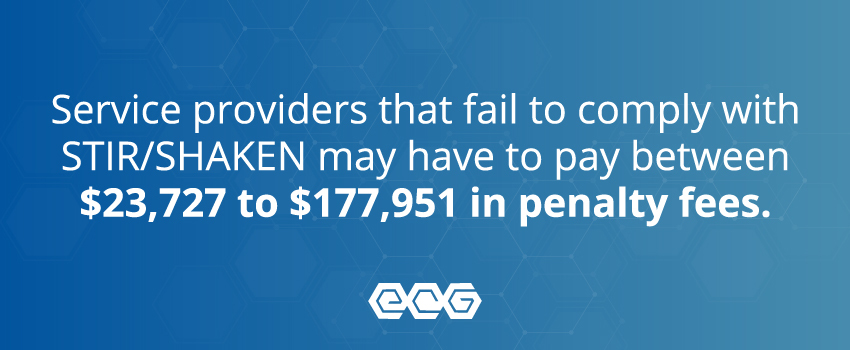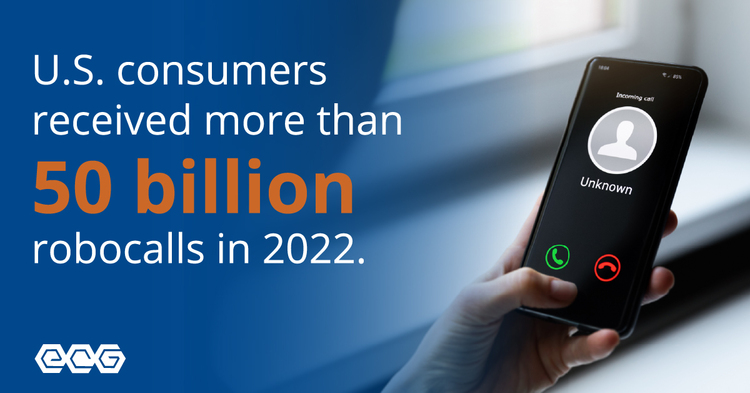The FCC’s STIR/SHAKEN deadline of June 30th, 2023, has come and gone – and you missed it. While it’s not an ideal scenario, there are still steps you can take to meet compliance requirements and protect your voice network from robocalls.
If you missed the deadline to comply, you’re likely dealing with headaches like the following:
-
Emails from customers saying they can no longer do business with you
-
Complaints that legitimate calls made over your network appear as spam
-
Difficulties with calls from your network being blocked automatically
These issues are a result of failing to follow the FCC’s guidelines to fight robocalling. So what will happen to your company now? Your network has likely already been blocked due to FCC STIR/SHAKEN (or FCC SHAKEN/STIR) non-compliance. Next, the FCC will refer your business to the Department of Justice, where they’ll assess potential fines. It’s a long and tedious process – but in the meantime, you’ll be unable to provide services to your customers.
Penalties for Failing to Comply With FCC STIR/SHAKEN
As with many privacy rules, the penalties for non-compliance with FCC STIR/SHAKEN guidelines can be severe. If you haven't put the right protective measures in place, downstream providers will be required to block your services – resulting in lost customers and revenue. And if that’s not enough to convince you of STIR/SHAKEN’s importance, providers can face penalty fees ranging from $23,727 to $177,951 for failing to comply with mandatory blocking requirements.1

What Are the Requirements to Comply With FCC STIR/SHAKEN?
The goal of STIR/SHAKEN is to counter spoofed and illegal robocalls by validating phone calls through digital certificates. While there are many other protections voice providers have to keep in mind when it comes to mitigating robocalls, the basics of complying with STIR/SHAKEN include:
-
Developing a robocall mitigation program that includes “detailed practices that can reasonably be expected to significantly reduce” illegal robocalls.
-
Submitting a certification to the Robocall Mitigation Database stating that they’ve implemented STIR/SHAKEN on all or part of their networks.
However, developing and following a plan that adheres to every STIR/SHAKEN requirement is easier said than done. If you’re struggling to create and follow STIR/SHAKEN as mandated by the FCC, working with an expert is the easiest solution.
It’s Not Too Late – ECG Can Help
ECG can give you the right expertise to keep up with privacy laws like STIR/SHAKEN. FCC also requires voice service providers to comply with the TRACED, E911, and TCPA acts, so if you need help understanding how to reduce any risk of non-compliance, ECG is here.
We help service providers and large enterprises worldwide maintain and build voice, collaboration, and data networks that meet security and compliance standards. Reach out today to schedule a quick call with our experts and learn more about how the ECG team can offer the technical guidance and support you need to mitigate robocalls correctly.
Sources:


